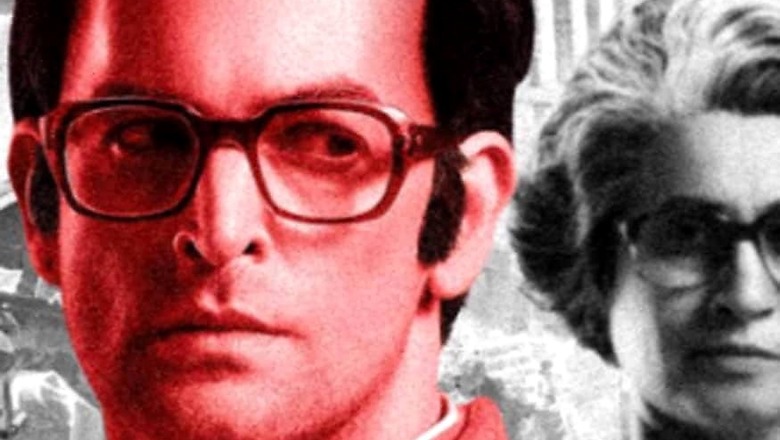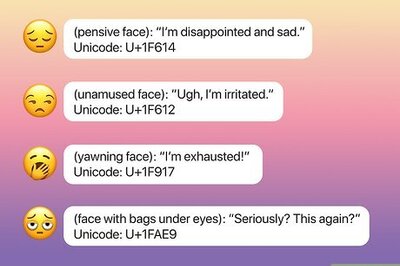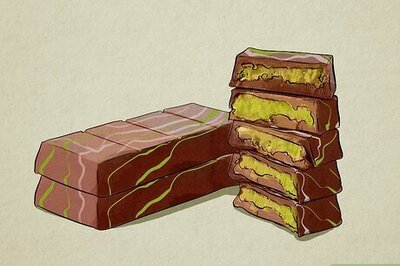
views
Director: Madhur Bhandarkar
Cast: Kriti Kulhari, Neil Nitin Mukesh, Anupam Kher, Tota Roy Chowdhury, Sheeba Chaddha, Ankur Vikal and Zakir Hussain
The power of impactful cinema knows no bound. Besides surprising you, stirring you and even at times making you question the times we live in, it can take you back to the events that happened in the past and help you develop a clear understanding of something you never witnessed but were aware of. Interestingly, Madhur Bhandarkar’s films with mind-bending plots have managed to do exactly that and in the process also help the viewers unlearn everything about their discernment of what happens around. With Page 3, Bhandarkar used a protagonist (Madhavi played by Konkona Sen) to familiarise viewers with the travesty, revulsion, and betrayal that exists in and outside the Page 3 world. With Corporate, he highlighted the treachery that lies behind the flashy and erudite demeanor of the corporate world. With Fashion, he made the viewers aware of the morally corrupt word of the fraternity. With Heroine, he served up a Bollywood expose. And with Indu Sarkar (which is a far cry from the rest of his films), he examines the Emergency period (1975-77).
In a country that is mired by scams, corrupt acts, and manipulative politics, the genre is undoubtedly the best option for all filmmakers. Unfortunately, each time a director takes up a political issue as the central theme of his film, it doesn’t go down well with many, including the Censor Board. Bhandarkar’s film too made headlines for the critical portrayal of the Emergency period, and after the Supreme Court refused to stay its release, it hit the screens across the country. But does the idea that looked interesting on papers, manages to live up to the hype? No.
With Emergency as the backdrop, Bhandarkar puts forth the story of Indu (Kriti Kulhari), an orphan in Delhi who tries her best to conquer her stammer. In her attempt to find consolation in words, she takes up poetry as her hobby. But is soon deterred from taking it seriously, and advised to focus on the ways that would help her become a perfect wife. Soon after she is rejected by a prospective groom, she is happy to meet Navin Sarkar (Tota Roy Chowdhury) who marries her without objecting to her “bolne mei khot" and provides her with a house and a surname. While Navin plays a typical babu, who is least bothered about what’s happening in the country, and busy enjoying the comfort of his job, Indu is affected by the protests that happen everywhere against the Emergency. But like a coy and submissive wife, she decides to remain unperturbed to the injustice that happens around her until she bumps into two kids, whose parents were killed in a slum demolition that was organized by the government. An orphan herself, Indu understands the kids’ deplorable condition and decides to bring them to her house. Irked by her decision, Navin (a government supporter) asks her to choose between him and the kids. Unpredictably, she leaves the house to raise the kids. With the turn of events, she finds herself as a part of a movement against the government. This movement is led by none other than Nanaji (Anupam Kher).
While we are happy that Bhandarkar used cinema to show the 1975 Emergency as the darkest time in the history of India, it is disappointing to see how he failed to realise that there was so much more that he could have dealt with. From leaders across political gamut being arrested to independent press being banned and administrative machinery wrecking havoc – there was much more to delve deeper into. While he puts forth a dismal state of affairs during Emergency, it doesn’t seem compelling in stating that Indian democracy for the first time after it attained independence was in shamble.
As far as acting is concerned, Kriti Kulhari is pretty impressive. Her transition from a reserved and demure wife to a strong, independent and fearless woman is appreciative and makes the story engaging for the viewers. As Indu, Kriti is convincing in pulling from her inner strength and being able to do things her way. In a manner quite different from the belief at that time, she is an independent woman who doesn’t have to bind herself to her husband to have a purpose in life. Kriti not only shows Indu’s vulnerability but also her incredible valor.
Totaroy Chaudhary as Navin comes across as the right government official who makes the most of the Emergency, but can’t avoid its repercussions.
Unfortunately, the much-talked about ‘sarkar’ appears in conversations, but never on screen except for just one sequence where Supriya Vinod appears for a few seconds. Actor Neil Nitin Mukesh, who has done interesting roles in the past, doesn’t have much to do as the ‘Chief’ which is evidently modeled on Sanjay Gandhi. We pity Bhandarkar for his incompetence to give him a substantial part. The moment Anupam Kher, appears on the screen, it is difficult not to expect him to infuse energy in the film. Just when we expect him to do something crucial – which he does – his screen time is shortened. Going by the treatment of these crucial characters, it is clear that the filmmaker was keen on using the protagonist to narrate the impact of the emergency.
Going by the massive hype surrounding its release, both for the talent involved (Kriti Kulhari, Neil Nitin Mukesh, Anupam Kher) and the topic it delved into, it doesn’t live up to the high standards that we had created in our minds.
Rating: 2/5




















Comments
0 comment